第33章 CHAPTER VI--THE TRUE FAIRY TALE(2)
Well, once upon a time, so long ago that no man can tell when, the land was so much higher, that between England and Ireland, and, what is more, between England and Norway, was firm dry land. The country then must have looked--at least we know it looked so in Norfolk--very like what our moors look like here. There were forests of Scotch fir, and of spruce too, which is not wild in England now, though you may see plenty in every plantation. There were oaks and alders, yews and sloes, just as there are in our woods now. There was buck-bean in the bogs, as there is in Larmer's and Heath pond; and white and yellow water-lilies, horn- wort, and pond-weeds, just as there are now in our ponds. There were wild horses, wild deer, and wild oxen, those last of an enormous size. There were little yellow roe-deer, which will not surprise you, for there are hundreds and thousands in Scotland to this day; and, as you know, they will thrive well enough in our woods now. There were beavers too: but that must not surprise you, for there were beavers in South Wales long after the Norman Conquest, and there are beavers still in the mountain glens of the south-east of France. There were honest little water-rats too, who I dare say sat up on their hind legs like monkeys, nibbling the water-lily pods, thousands of years ago, as they do in our ponds now. Well, so far we have come to nothing strange: but now begins the fairy tale. Mixed with all these animals, there wandered about great herds of elephants and rhinoceroses; not smooth-skinned, mind, but covered with hair and wool, like those which are still found sticking out of the everlasting ice cliffs, at the mouth of the Lena and other Siberian rivers, with the flesh, and skin, and hair so fresh upon them, that the wild wolves tear it off, and snarl and growl over the carcase of monsters who were frozen up thousands of years ago. And with them, stranger still, were great hippopotamuses; who came, perhaps, northward in summer time along the sea-shore and down the rivers, having spread hither all the way from Africa; for in those days, you must understand, Sicily, and Italy, and Malta--look at your map--were joined to the coast of Africa: and so it may be was the rock of Gibraltar itself; and over the sea where the Straits of Gibraltar now flow was firm dry land, over which hyaenas and leopards, elephants and rhinoceroses ranged into Spain; for their bones are found at this day in the Gibraltar caves. And this is the first chapter of my fairy tale.
Now while all this was going on, and perhaps before this began, the climate was getting colder year by year--we do not know how; and, what is more, the land was sinking; and it sank so deep that at last nothing was left out of the water but the tops of the mountains in Ireland, and Scotland, and Wales. It sank so deep that it left beds of shells belonging to the Arctic regions nearly two thousand feet high upon the mountain side. And so "It grew wondrous cold, And ice mast-high came floating by, As green as emerald."
But there were no masts then to measure the icebergs by, nor any ship nor human being there. All we know is that the icebergs brought with them vast quantities of mud, which sank to the bottom, and covered up that pleasant old forest-land in what is called boulder-clay; clay full of bits of broken rock, and of blocks of stone so enormous, that nothing but an iceberg could have carried them. So all the animals were drowned or driven away, and nothing was left alive perhaps, except a few little hardy plants which clung about cracks and gullies in the mountain tops; and whose descendants live there still. That was a dreadful time; the worst, perhaps, of all the age of Ice; and so ends the second chapter of my fairy tale.
Now for my third chapter. "When things come to the worst," says the proverb, "they commonly mend;" and so did this poor frozen and drowned land of England and France and Germany, though it mended very slowly. The land began to rise out of the sea once more, and rose till it was perhaps as high as it had been at first, and hundreds of feet higher than it is now: but still it was very cold, covered, in Scotland at least, with one great sea of ice and glaciers descending down into the sea, as I said when I spoke to you about the Ice-Plough. But as the land rose, and grew warmer too, while it rose, the wild beasts who had been driven out by the great drowning came gradually back again. As the bottom of the old icy sea turned into dry land, and got covered with grasses, and weeds, and shrubs once more, elephants, rhinoceroses, hippopotamuses, oxen--sometimes the same species, sometimes slightly different ones--returned to France, and then to England (for there was no British Channel then to stop them); and with them came other strange animals, especially the great Irish elk, as he is called, as large as the largest horse, with horns sometimes ten feet across. A pair of those horns with the skull you have seen yourself, and can judge what a noble animal he must have been. Enormous bears came too, and hyaenas, and a tiger or lion (I cannot say which), as large as the largest Bengal tiger now to be seen in India.